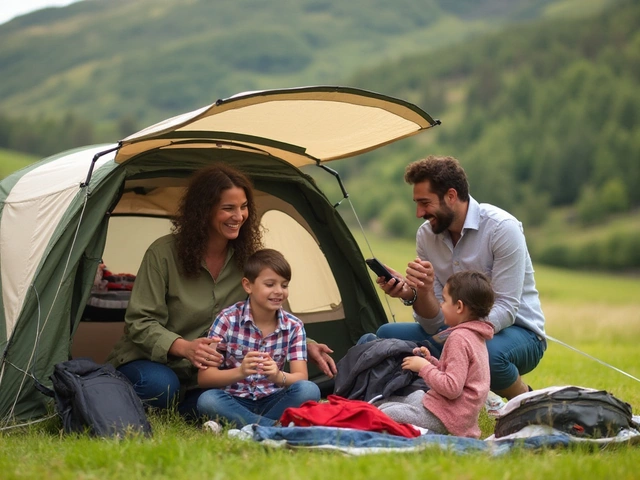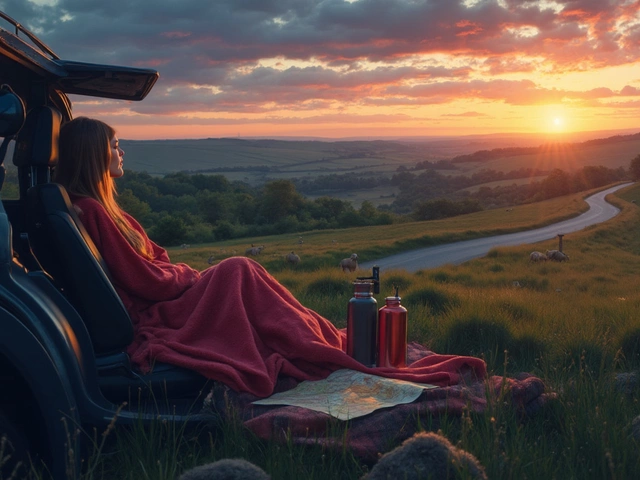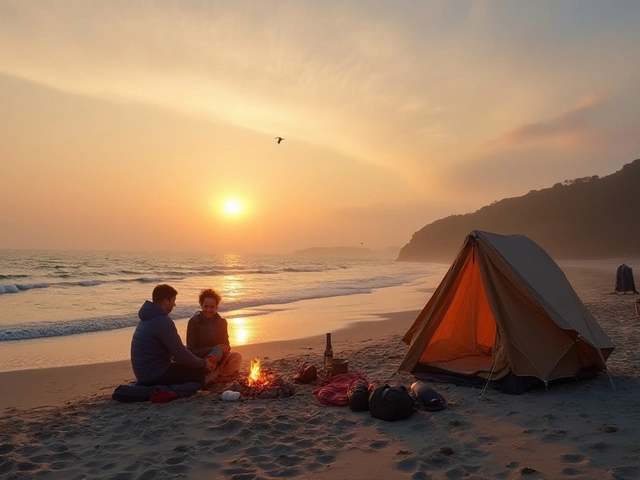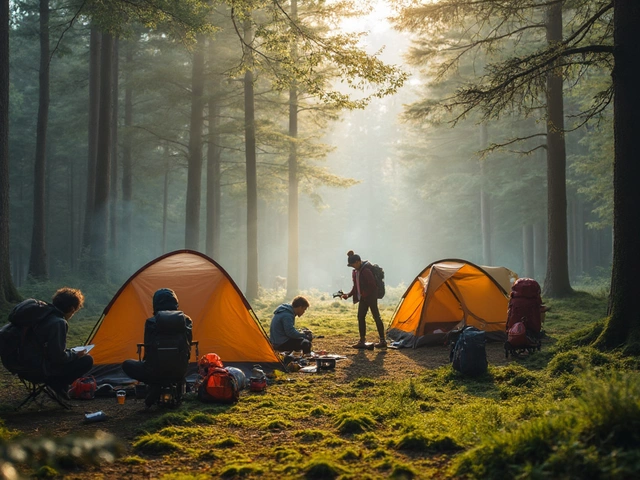Airbnb RV Rental Income Calculator
Calculate Your Potential Earnings
Estimate your annual income and profit from listing your RV on Airbnb based on your specific circumstances.
Your Estimated Annual Income
Net Profit After Costs
Cost Breakdown
- Airbnb Host Fee (3%) £0
- Guest Service Fee (6%) £0
- Insurance Costs £0
- Maintenance Costs £0
- TOTAL COSTS £0
Important Considerations
This calculator is based on UK-specific fees. Actual income may vary depending on location, seasonality, and vehicle type.
Remember to factor in additional costs like fuel, cleaning, and any mileage overages you might charge guests.
Airbnb vs. Specialist Platforms
| Feature | Airbnb | Outdoorsy | RVshare |
|---|---|---|---|
| Host Fee | 3% | 5% | 6% |
| Guest Service Fee | 6% | 10% | 10% |
| Insurance Options | Owner provided | Built-in coverage | Standard coverage |
| Minimum Vehicle Size | Any size | Motorhomes 20ft+, Campervans 15ft+ | Motorhomes 20ft+, Campervans 15ft+ |
Ever wondered whether you can find an RV on Airbnb and how owners actually list their motorhomes there? The short answer is yes - Airbnb has stepped into the peer-to-peer RV market, and a growing number of owners are using the platform to reach travelers looking for a home‑on‑wheels experience.
Below we break down everything you need to know: why owners choose Airbnb, how to list a vehicle, legal and insurance hurdles in the UK, and how the service stacks up against specialist platforms like Outdoorsy and RVshare.
What are Airbnb RV rentals?
Airbnb RV rentals are listings where an individual offers a motorhome, campervan or converted van for short‑term hire through the Airbnb marketplace. The concept mirrors Airbnb’s core offering - private homes for short stays - but applies it to mobile accommodation. The platform handles booking, payment and basic communication, while the owner supplies the vehicle, insurance and any optional extras.
Airbnb RV rentals have attracted both seasoned nomads and first‑time renters because they combine Airbnb’s brand trust with the freedom of road travel.
Why owners choose Airbnb over dedicated RV platforms
- Airbnb already has a massive global audience of over 400 million users, so owners tap into an existing pool of travelers without building a separate following.
- The platform’s review system is familiar to renters, which often translates into higher booking confidence.
- Airbnb’s host dashboard makes it easy to manage calendars, set house rules, and communicate with guests - all in one place.
- Owners can list any type of recreational vehicle, from a compact campervan to a full‑size motorhome, without meeting strict vehicle‑type criteria.
Step‑by‑step guide to listing your RV on Airbnb
- Sign up or log into your Airbnb account. If you’re already a home host, you can add a new “Property type”.
- Choose “Vehicle” as the property type. The form will ask for make, model, year, and passenger capacity.
- Upload high‑quality photos. Show the interior, sleeping arrangements, kitchen, bathroom (if any), and exterior. Outdoor shots with the vehicle parked in a scenic spot work best.
- Set your pricing. Airbnb suggests a nightly rate based on similar listings, but you can override it. Consider seasonal demand, mileage limits, and fuel costs.
- Define house rules. Typical rules include:
- No smoking inside the vehicle.
- Maximum driver age 25+ (or as required by your insurance).
- Limit mileage to 150 km per day unless you offer an extra‑kilometre package.
- Upload proof of insurance that covers peer‑to‑peer rentals. Airbnb requires owners to have appropriate coverage, and you’ll need to attach the policy document.
- Publish the listing. Airbnb will review it for compliance (usually within 24 hours).
- Once a booking is confirmed, use the Airbnb messaging tool to arrange key hand‑over, walk the guest through operating the vehicle, and answer any pre‑trip questions.

Legal, tax and insurance considerations in the UK
Before you list, make sure you understand the regulatory landscape. Failure to comply can lead to hefty fines or even loss of your driving licence.
- Vehicle registration: The Driver and Vehicle Licensing Agency (DVLA) must be informed if you’re using the motorhome for commercial hire. This usually involves a change of use on the V5C certificate.
- Insurance: Standard private motorhome policies often exclude hire‑and‑return use. Look for a “peer‑to‑peer” endorsement or a specialist motorhome hire insurance from providers like Aviva or Admiral. These policies typically cover third‑party liability, damage to the vehicle, and personal accident for both driver and passengers.
- Tax implications: Income earned from Airbnb is taxable. Keep detailed records of earnings, expenses (cleaning, maintenance, mileage allowances), and share them with your accountant. You may be able to claim a proportion of fuel costs based on the business use percentage.
- Road safety: Ensure the vehicle passes its annual MOT and has a valid road‑tax disc. Provide guests with a copy of the vehicle’s safety checklist before they set off.
How Airbnb compares to specialist RV rental platforms
| Feature | Airbnb | Outdoorsy | RVshare |
|---|---|---|---|
| Global user base | 400 M+ (all travel categories) | 2 M+ (RV specific) | 2 M+ (RV specific) |
| Listing fees | 3 % host fee + service fee to guest | 5 % host fee + 10 % guest service fee | |
| Insurance options | Owner‑provided, must meet Airbnb standards | Built‑in liability and physical damage coverage (optional upgrades) | Standard liability coverage; physical damage optional |
| Vehicle types accepted | Any motorhome, campervan, converted van | Motorhomes 20‑ft+, campervans 15‑ft+ | |
| Average booking lead time | 7‑30 days | 14‑60 days | |
| Support for mileage limits | Owner sets custom limits | Standard 150 km/day, extra charge per km | |
| Cancellation policy | Flexible, Moderate, Strict (owner chooses) | Flexible, Moderate, Strict (owner chooses) |
From the table you can see that Airbnb wins on sheer audience size, but dedicated platforms offer more specialised insurance and mileage‑tracking tools. Your choice depends on what you value most - exposure or RV‑specific services.
Best practices for a successful Airbnb RV listing
- Professional photos: Hire a local photographer or use a high‑resolution smartphone with a wide‑angle lens. Show the vehicle from multiple angles and include lifestyle shots of the interior set up for sleeping, cooking and relaxing.
- Transparent pricing: Break down costs - nightly rate, cleaning fee, mileage allowance, fuel surcharge - so guests know exactly what they’ll pay.
- Clear documentation: Upload a copy of the insurance policy, registration, and a short “Owner Manual” that explains how to operate the slide‑out, water tanks, and heating system.
- Prompt communication: Respond to inquiries within an hour when possible. Quick replies boost your Airbnb ranking and increase conversion.
- Offer extras: Provide optional gear such as a portable BBQ, bike rack, or child car seat for an additional fee. Extras increase average revenue per booking.
- Maintain the vehicle: Clean thoroughly after each stay, check oil levels, tire pressure and battery health. Positive reviews hinge on a well‑kept vehicle.

Common pitfalls and how to avoid them
- Insufficient insurance coverage: Some owners rely on their private policy and discover it voids the claim if the vehicle is used for hire. Always get a dedicated peer‑to‑peer endorsement.
- Overlooking mileage limits: Guests who exceed the agreed km can cause disputes. Set a realistic limit (e.g., 150 km/day) and charge a per‑km overage fee.
- Missing paperwork: If the DVLA isn’t informed of the change of use, you risk fines. File the appropriate form (V5C/2) before you start renting.
- Poor hand‑over process: Skipping a walkthrough leads to confusion about how to operate gas, shifter, or waste tanks. Create a checklist and go through each item in person or via video call.
- Ignoring local camping restrictions: Some UK campsites ban “motorhome rentals” or require an extra fee. Check site policies before confirming a guest’s itinerary.
What guests can expect from an Airbnb RV experience
Guests looking at Airbnb RV rentals often value the seamless booking experience and the ability to read reviews from other travelers. The platform’s “Superhost” badge helps guests trust that the vehicle will be clean, well‑maintained, and accurately described. Additionally, the integrated payment system means no cash exchanges - everything is handled securely through Airbnb.
Future outlook - will Airbnb dominate the RV market?
Airbnb’s massive capital and brand trust give it a solid foothold, but the RV industry remains niche. Specialist platforms continue to innovate with features like telematics, in‑app fuel discounts, and integrated GPS routing. Expect Airbnb to keep improving its vehicle listings, perhaps adding built‑in insurance options or a “Road‑Trip Planner” tool. For now, the safest bet for owners is to list on multiple platforms to maximise exposure.
Can I list any type of motorhome on Airbnb?
Yes. Airbnb doesn’t restrict vehicle size or brand, but you must provide accurate details, photos, and proof of insurance that covers peer‑to‑peer rentals.
Do I need a special insurance policy for Airbnb RV rentals?
A standard private motorhome policy usually excludes hire use. You’ll need a dedicated peer‑to‑peer endorsement or a specialist motorhome‑hire policy that covers third‑party liability and physical damage.
How does Airbnb’s host fee for RVs compare to other platforms?
Airbnb takes a 3 % host fee plus a service fee from guests. Outdoorsy typically charges around 5 % to hosts and adds a 10 % guest fee, while RVshare’s host fee sits near 6 % with a similar guest charge.
Do I need to notify the DVLA when I start renting my motorhome?
Yes. Changing the vehicle’s use to commercial hire requires updating the V5C registration form. Failure to do so can result in fines and invalidate insurance.
What are the biggest advantages of listing on Airbnb?
The main perks are massive exposure, a trusted payment system, and an integrated review platform that builds credibility quickly for new hosts.






